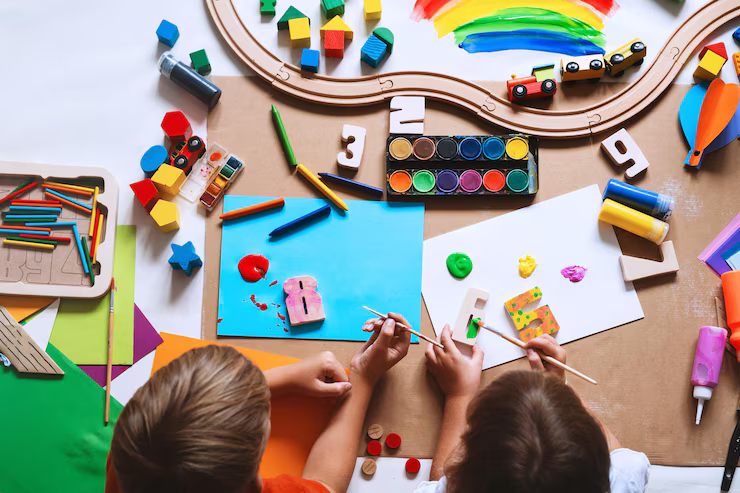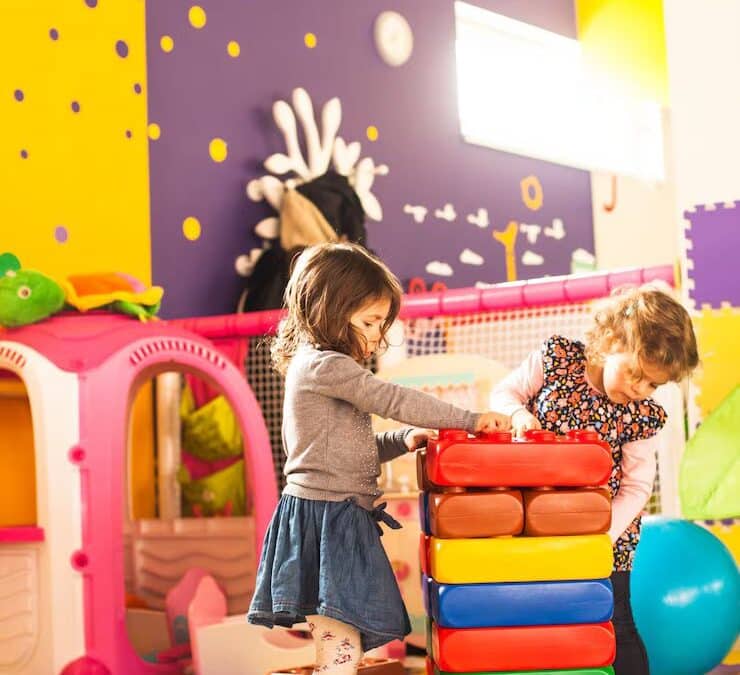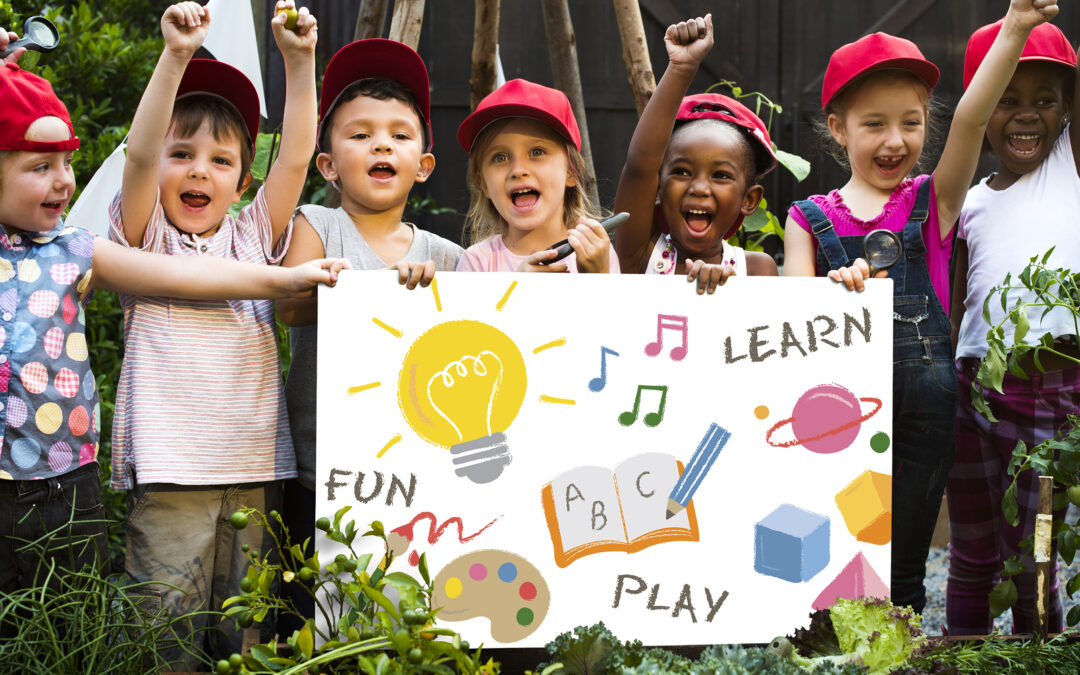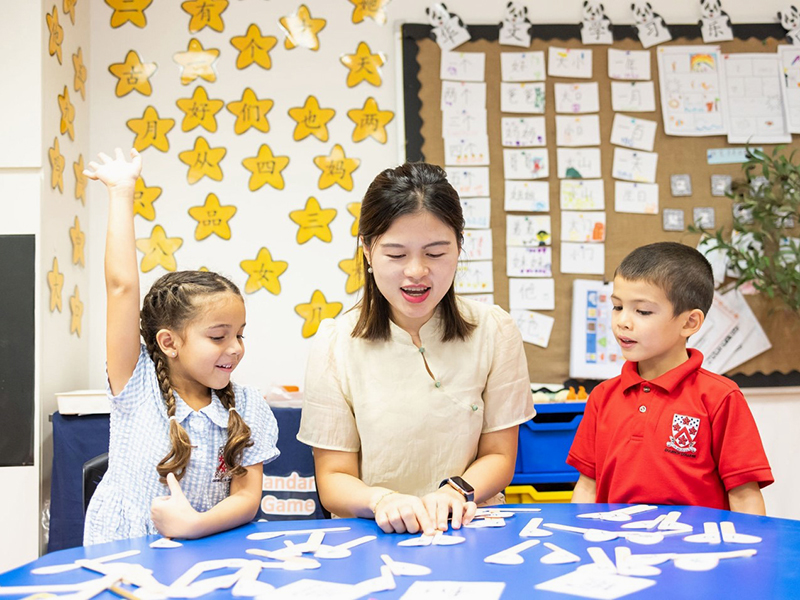An afterschool program serves as an essential guide to bridge the gap between school dismissal and the end of a typical workday. Engaging young minds during these critical hours is not just a convenience; it’s a catalyst for enriching children’s learning experiences beyond the classroom walls.
These structured activities offer a supportive backbone for working families, ensuring their children are not only supervised but also afforded extra academic help, social skills development, and an environment conducive to exploration and growth.
The benefits of afterschool programs extend far beyond merely filling time. They provide:
- A haven for students where they can continue to learn and play.
- Opportunities for academic enhancement and personalized attention in subjects that may be challenging.
- Platforms for social interaction, helping children develop crucial interpersonal skills.
- Support systems that alleviate the pressures on working parents concerned about after-school care.
In the forthcoming sections, expect to discover seven innovative afterschool program ideas designed to captivate and elevate young minds. These ideas range from Montessori-Inspired Explorations, which align with Amici Montessori’s commitment to nurturing each child’s potential, to Outdoor Adventures, all tailored to spark curiosity and foster a love of lifelong learning.
Whether you’re aiming to create an environment similar to those offered by Amici Montessori or seeking inspiration for your program, this article will serve as your roadmap to success.
Getting Started: Planning Your Afterschool Program
Embarking on the journey of starting an afterschool program requires careful planning and foresight. Here’s a roadmap to help you navigate.
Conduct a Needs Assessment
The first step involves understanding your community’s requirements with a thorough needs assessment. This involves research and dialogue with parents, schools, and other stakeholders in your community to identify the types of after-school services needed. For instance, do the children need academic support, physical activities, or an emphasis on arts and crafts? Understanding these needs will shape the direction of your program.
Define Your Mission and Goals
Equipped with this information, you can then define a clear mission, vision, and set of goals for your program. Your mission statement should communicate the purpose of your program, while the vision should depict the impact you wish to have on the children and community. Clear goals will guide your activities and help maintain alignment with your values.
Craft a Comprehensive Business Plan
A comprehensive business plan is an essential tool for any new venture. For your afterschool program, this should include details about:
- Budgeting: Outline anticipated costs such as salaries for staff, rent for the premises, supplies, and insurance among others.
- Marketing Strategies: How will you attract participants to your program? Consider various marketing channels like social media, flyers at local businesses, or word-of-mouth referrals.
- Sustainability Measures: How will your program remain financially viable in the long term? Explore potential revenue streams such as fees from participants, grants, or partnerships.
Additionally, it would be beneficial to learn from successful Montessori schools that have implemented effective teaching methodologies and philosophies. Incorporating elements from their approach could greatly enhance your afterschool program.
By following these steps meticulously, you lay a solid foundation for your afterschool program. Next comes creating an environment that fosters learning and growth for young minds!
Creating the Right Environment: Space, Facilities, and Curriculum
https://www.istockphoto.com/photo/group-of-school-students-learning-lessons-from-digital-tablet-screen-in-activity-room-gm1494311192-517692759
Selecting an ideal location for your after-school program is crucial. It should not only be easily accessible to the children and their families but also provide ample space for a wide range of activities. Safety is paramount, so make sure the site is well-lit, secure, and conducive to learning. Look at nearby resources such as parks, libraries, or museums that can enrich your program’s offerings.
Once you have the location set, start designing a comprehensive curriculum. Remember, you aim to supplement school education while keeping children engaged and excited about learning. Some key elements your curriculum could include are:
- Academic Support: Activities that build on what children learn in school. This could be tutoring sessions for challenging subjects or homework assistance.
- Enrichment Classes: Dabble in everything from art and music to science experiments to keep learning fun and interactive.
- Free Play Time: Allow kids to unwind with some unstructured playtime. This could include board games, sports, or simply letting them use their imagination in a safe space.
Incorporate feedback from parents and children when planning these activities. This will help ensure that your program caters directly to their needs and interests.
Keep in mind that the curriculum should be flexible enough to adapt as you observe what works best for your group of children over time.
For inspiration on curriculum planning, you can reach out to other after-school program providers like Amici Montessori. They can offer valuable insights into creating a well-rounded curriculum that combines academic support with engaging enrichment classes.
Creating the right environment – a blend of an accessible location and a stimulating curriculum – forms the backbone of an impactful after-school program. If you’re interested in enrolling your child into such a program, you may check out Amici Montessori’s admissions page for further details.
Building Your Team: Staffing and Safety Guidelines
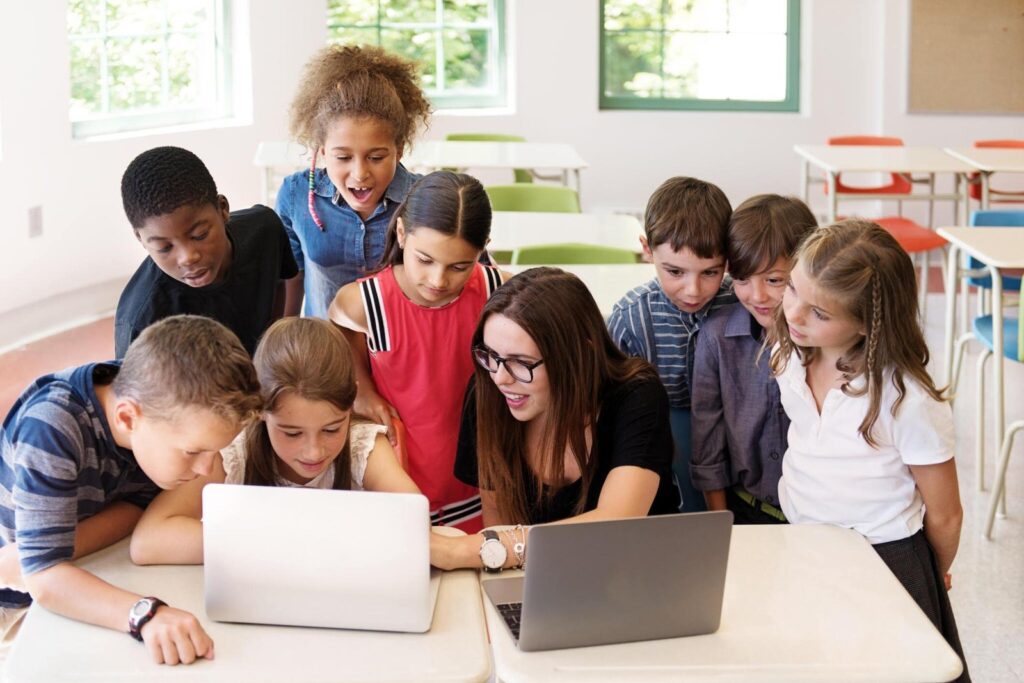
Hiring qualified staff who are passionate about working with children is a cornerstone of any successful afterschool program. The effectiveness of your program largely depends on the educators and facilitators who interact with the children daily.
Look for individuals who not only have appropriate educational credentials but also exhibit genuine enthusiasm for child development. These team members should be capable of creating a warm and dynamic learning atmosphere that supports each child’s unique needs.
Safety is another critical aspect, as parents entrust their children to your care. To ensure the safety and well-being of participants, comprehensive measures must be in place:
- Proper Supervision: Maintain an adequate staff-to-child ratio to ensure every child receives the attention they need. Continuous monitoring helps prevent accidents and ensures that all activities are carried out safely.
- Emergency Preparedness: Have clear protocols for different types of emergencies, including natural disasters, medical incidents, and security threats. Regular training and drills will help staff respond quickly and effectively in case of an emergency.
- Health Guidelines: Adherence to health guidelines is non-negotiable, especially in light of recent global events. Establish routines for cleanliness, regular handwashing, and illness prevention strategies to maintain a healthy environment for both staff and children.
For those interested in how an effective primary program operates or looking into tuition details that reflect the investment in quality staff and safe environments, exploring resources such as Amici Montessori’s Primary Program can provide valuable insights.
By focusing on these key areas when building your team, you set up your afterschool program for success, ensuring that every child has access to a nurturing space where they can thrive beyond traditional school hours.
Partnering with Parents, the Community, and Montessori Education
To make your afterschool program as effective as possible, it’s important to establish strong connections with both parents, and your local community, and leverage educational philosophies like Montessori education that can greatly benefit children at this stage of their development.
Parent Involvement
Parents play a crucial role in their child’s education. Developing a strong partnership with them can have a significant impact on the success of your program. Here are some ways you can involve parents:
- Regular Communication: Keep parents up to date on the program’s activities, their child’s progress, and any upcoming events. You can do this through newsletters, parent-teacher meetings, or online platforms.
- Parent Education Workshops: Offer sessions where parents can learn more about child development, effective parenting techniques, and how they can support their child’s learning at home.
- Participation in Program Activities: Encourage parents to join in on special events or activities. This not only strengthens the bond between parent and child but also fosters a sense of community within your program.
Community Partnerships
Establishing connections with local organizations, businesses, or volunteers can greatly enhance the offerings of your afterschool program. Here are some potential partnerships to consider:
- Local Organizations: Collaborate with cultural institutions, libraries, or science centers for educational outings or guest speakers.
- Businesses: Form alliances with nearby businesses that can provide resources or funding for your program. In return, they receive exposure within the community and contribute to their corporate social responsibility goals.
- Volunteers: Involve members of the community as volunteers to share their expertise or interests with the children. This adds variety to your program and presents unique learning opportunities.
By nurturing these partnerships, you’re not just establishing an afterschool program; you’re building a vibrant learning community that promotes the overall growth of every child. Additionally, incorporating Montessori principles into your program can provide children with a nurturing environment that fosters independence, creativity, and a love for learning.
Brilliant After School Program Ideas to Engage Young Minds
https://www.istockphoto.com/photo/school-children-using-laptop-with-teacher-in-the-classroom-gm586711670-100709639
Montessori-Inspired Explorations
If you’re looking to infuse your after school program activities with creativity and hands-on learning, consider the Montessori approach. This child-centered educational method fosters independence and respects a child’s natural psychological, physical, and social development.
- Sensory Bins: Fill containers with a variety of materials like rice, beans, or water beads, and allow children to explore textures and practice fine motor skills. Each sensory bin can be themed to match a specific educational concept or season.
- Practical Life Tasks: Equip a space where children can engage in everyday tasks such as pouring, sweeping, or buttoning. These activities not only improve coordination but also instill a sense of responsibility and order.
- Self-Guided Exploration Stations: Set up learning centers where children can choose activities that interest them, from puzzle solving to nature observation. This encourages self-directed learning and promotes curiosity.
Implementing these Montessori-inspired explorations in your after school program provides an environment where children are free to learn at their own pace. They develop concentration, motivation, self-discipline, and a love of learning — critical elements that benefit them across all areas of life.
Outdoor Adventures and Nature Discovery
Engaging young minds in after school program activities extend beyond indoor learning centers and the Montessori approach. Hands-on activities in the great outdoors offer a treasure trove of educational experiences. Here are some dynamic ways to incorporate nature into your afterschool offerings:
- Nature Walks: Equip children with magnifying glasses and notebooks, transforming a simple walk into a scientific expedition. As they observe flora and fauna, they make real-world connections to their science lessons.
- Gardening Club: By starting a gardening club, students get their hands dirty while learning about plant biology, responsibility through caring for a living thing, and the satisfaction of harvesting their produce.
- Environmental Awareness: Integrate environmental conservation lessons into your program. Activities like recycling projects or building birdhouses foster respect for nature and teach valuable sustainability practices.
These approaches not only enrich the after school program but also instill in children a lasting appreciation for the natural world around them.
Tech Explorations: Coding and Robotics
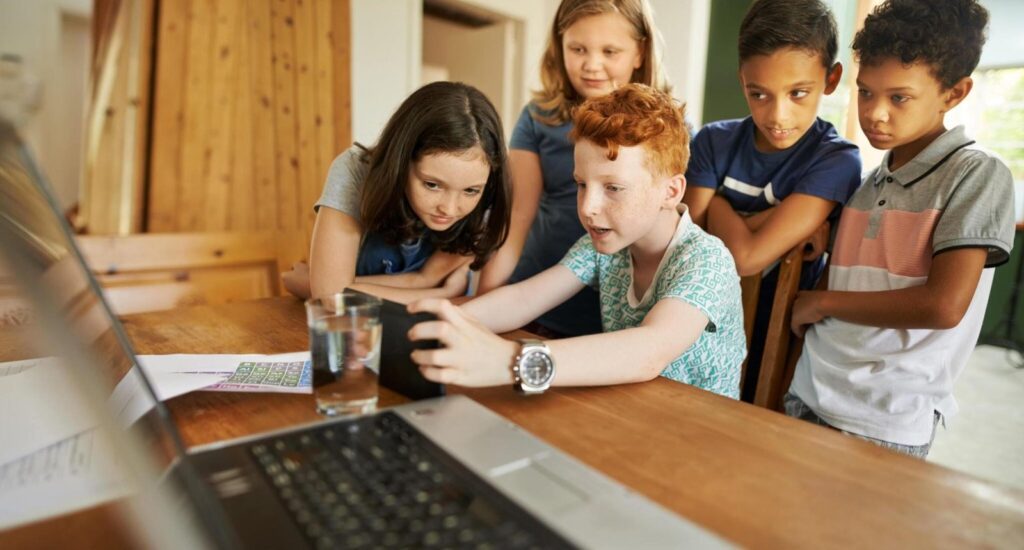
Let’s dive into the future with our next after school program activity – Tech Explorations. This idea is all about immersing young minds in the world of technology through coding games and robotics clubs.
Introduce Coding Games
Why not start by introducing students to simple coding games? These hands-on activities are a fun way to learn the basics of programming and computational thinking. Many online platforms are offering interactive coding games suitable for different age groups, enabling children to progress at their own pace.
Explore Programmable Robots
Then, take things up a notch with programmable robots. With a little guidance, children can learn to program these robots to perform specific tasks. This not only fosters their problem-solving skills but also provides a tangible outcome for their efforts, sparking joy and a sense of accomplishment.
Encourage Collaboration
Last but not least, encourage collaborative projects that allow children to work together on tech-related tasks. By combining their skills and ideas, they can create something truly unique while also learning essential teamwork skills.
Remember, you don’t need to be a technology expert to facilitate these activities. There are plenty of resources available online that can guide you along the way. The important thing is to foster an environment of exploration and curiosity where children feel empowered to experiment and learn.
Creative Expressions: Art and Drama Workshops
Engaging children through arts and drama can be an effective way to foster self-expression and imagination. Art workshops can provide an avenue for students to explore various techniques, allowing them to express their artistic flair. Consider setting up various stations where they can experiment with mediums like painting, pottery, or even digital art.
Pairing these art workshops with interactive drama sessions, you can tap into the theatrical potential of your students. These sessions could involve acting out stories, improvisation games, or even puppet shows for younger age groups.
The Montessori approach encourages hands-on activities and learning centers that stimulate creativity and critical thinking. Following this principle in your after school program activities can ensure a well-rounded development of your participants.
Remember that the goal is not to create professional artists or actors, but rather to provide opportunities for children to express themselves freely, build confidence, and have fun in a safe and supportive environment. This blend of art and drama indeed makes for an engaging afterschool program that promotes creative expression.
Sportsmanship: Team Sports and Friendly Competitions
In any after school program, activities that promote teamwork, leadership, and sportsmanship values can be highly beneficial for children. Taking a cue from the Montessori approach, we can incorporate hands-on activities that engage young minds physically as well as mentally.
Organized Team Sports Activities
Inspire camaraderie and cooperation through team sports like soccer, basketball, or volleyball. Such games not only keep children active but also teach them to work together towards a common goal. They learn valuable lessons in communication, strategy, and resilience.
Friendly Tournaments
Set up friendly tournaments where the focus is not just on winning but on fair play and mutual respect. These competitions could range from traditional sports to innovative games designed to challenge their creativity and problem-solving skills.
Remember, the aim is not just to introduce physical activity but to create a safe space where children can develop their social skills and self-esteem.
With these sportsmanship-focused after school program activities, you’re nurturing young minds to be future leaders who value teamwork and respect for others.
World Explorers: Cultural Theme Weeks
In line with the Montessori approach that values hands-on activities and learning centers, this section presents a range of innovative, practical ideas. These can be easily implemented in any afterschool program setting to foster an appreciation for cultural diversity and inspire creativity.
Themed weeks celebrating various cultures offer a unique way to engage young minds. Each week, children can explore a different culture through:
- Food Tastings: Children can sample traditional foods from each culture. This not only introduces them to new tastes but also allows them to learn about the significance of these foods in each culture.
- Crafts: Children can create traditional crafts using materials and techniques specific to the culture being studied. This hands-on activity helps children connect with the culture on a deeper level.
- Music: Exposure to music from different cultures broadens children’s understanding of diverse musical styles and rhythms. They can listen, dance, or even learn to play traditional musical instruments.
Each themed week provides an engaging way for children to learn about the world beyond their immediate surroundings. It encourages respect for cultural diversity and fosters a sense of global citizenship among young learners.
Service Learning Projects for a Better Community
Engaging young minds in after school program activities that foster social responsibility is a powerful way to instill lifelong values. Service learning projects, unlike traditional community service, integrate meaningful community service with instruction and reflection to enrich the learning experience, teach civic responsibility, and strengthen communities.
- Local Impact: Children can participate in organizing a food drive to assist local shelters or food banks. This offers an opportunity to understand food insecurity and the importance of community support.
- Awareness Campaigns: Creating awareness campaigns for social issues allows children to use their voices for a cause. They might design posters on recycling or create presentations on bullying prevention.
- Hands-On Activities: Incorporate hands-on activities that benefit the community, such as making blankets for hospitals or creating cards for residents in senior living facilities.
Service learning goes beyond the Montessori approach of self-directed, hands-on learning centers; it connects students with real-world problems and empowers them to become active participants in their community. When children see the impact of their work, they develop a sense of agency and learn the value of contributing to society.
Ensuring Quality and Continuous Improvement
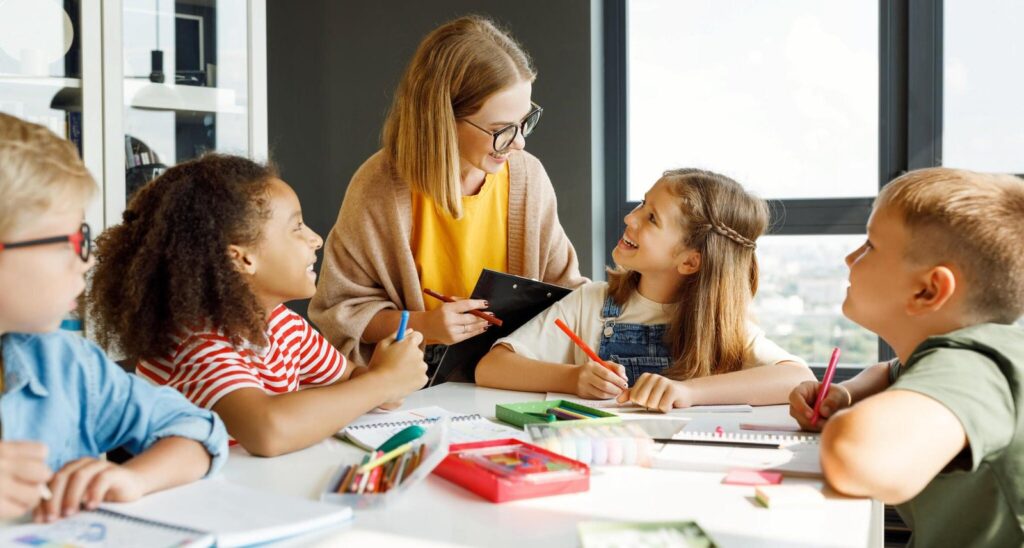
To maintain high standards in your afterschool program, it’s important to have a strong program evaluation system. This process helps you measure how effective your program is and find ways to make it better.
Here are some key steps to ensure quality and continuous improvement:
- Gather Feedback: Regularly ask for input from everyone involved in your program – students, parents, staff, and community partners. This feedback is valuable because it gives you different perspectives on how your program is doing.
- Establish Feedback Loops: Create ways for people to share their thoughts and concerns openly, and make sure you respond to them quickly. This helps build trust and shows that you value everyone’s opinion.
- Analyze Data: Look at things like attendance, student progress, and how engaged students are as measurable signs of how well your program is working. Use this information to make decisions and find ways to improve.
- Be Willing to Change: Stay open to making adjustments based on feedback and data analysis. Being flexible and willing to change shows that you’re focused on meeting the needs of your students.
- Encourage Learning: Support your staff in growing professionally by offering training opportunities and encouraging them to share what they’ve learned with each other. A team that keeps learning will create an environment where excellence can thrive.
By regularly checking how well your program is doing and being responsive to feedback, you can make sure that it not only meets expectations but goes above and beyond them. This creates a positive environment where young people can learn and grow.
Conclusion
Providing a stimulating afterschool environment plays a pivotal role in children’s holistic development. It opens doors for academic advancement, and social skills enhancement, and offers a safe space where young minds can learn, explore, and thrive.
Consider the seven brilliant afterschool program ideas discussed within this article. They offer a diverse range of activities from Montessori-inspired explorations to tech adventures that introduce coding and robotics. You can adapt these ideas to align with your program’s goals and community needs, ensuring maximum engagement and learning.
Amici Montessori stands as the epitome of an elementary school that offers exceptional after-school enrichment opportunities. They incorporate various Montessori-inspired activities into their curriculum, creating an environment where children can grow both academically and personally.
To gain more insight into how they successfully execute these programs or find inspiration for your program, consider visiting their website. Their success story could be the spark that ignites the flame of brilliance in your afterschool program.
Remember, the goal of every afterschool program is to engage young minds, foster curiosity, and create lifelong learners. With thoughtful planning, a dedicated team, and a dash of creativity – you can make this possible!


